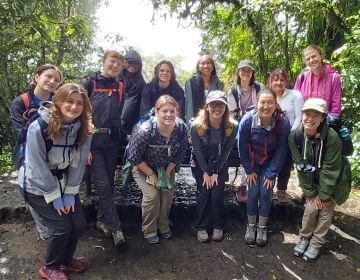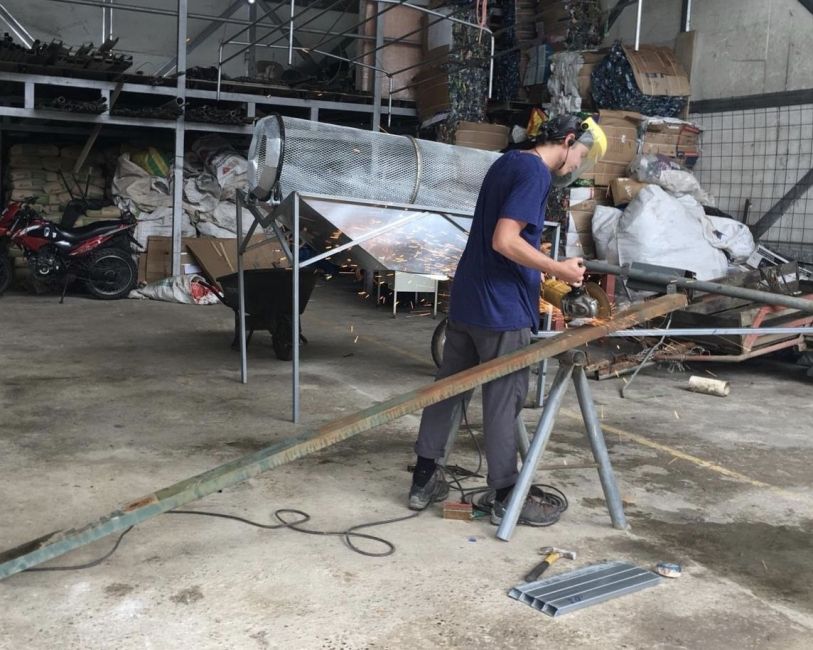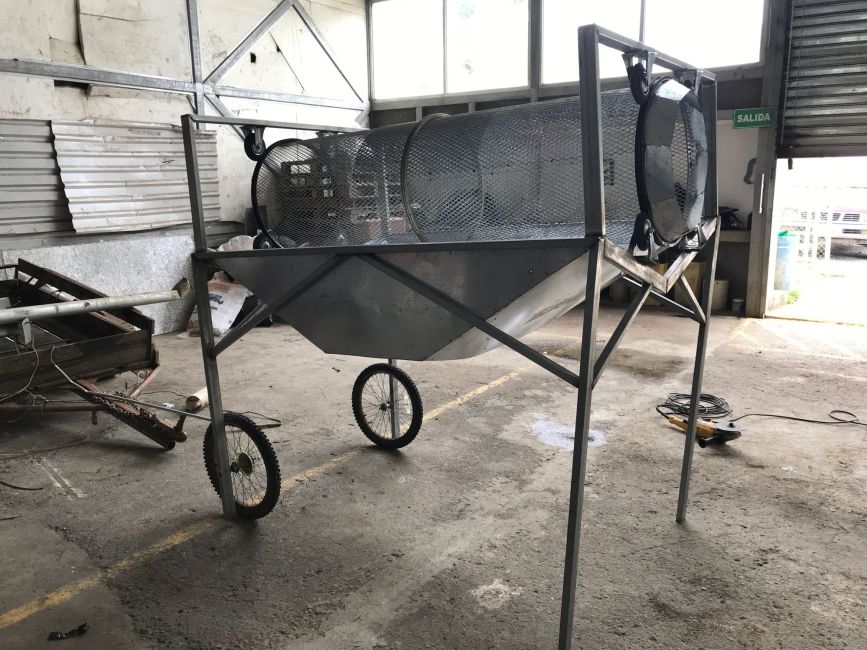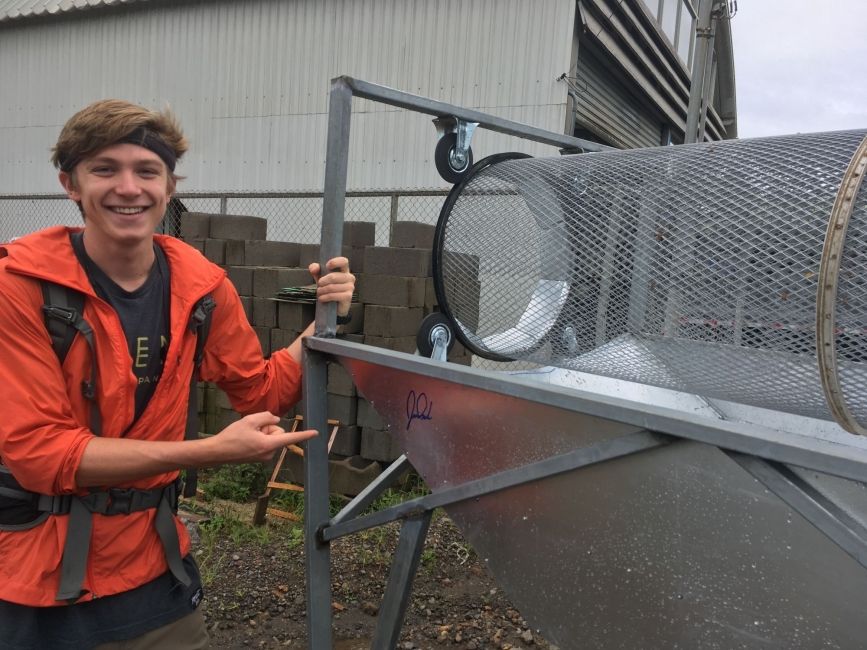Designing and Developing a Compost Sifter for Future Use in the Municipality of Monteverde
Written by Jackson R. Beck (University of Colorado Boulder), Internship in Sustainability and the Environment.
This hands-on experienced provided the opportunity to directly address and mitigate environmental issues related to organic waste. In collaboration with project coordinator, Justin Welch, and through funding by the Municipal Commissions for Solid Waste Management (COMIRES), I worked to design and construct a mechanical compost sifter capable of handling compost produced by the entire municipality of Monteverde. This machine provides the necessary infrastructure to establish a central composting facility for the Monteverde community. Ideally, it will aid COMIRES efforts in promoting future communal participation in composting.
The greatest appeal of this internship came from the hands-on requirements. My extensive history in metalworking allowed for me to take this internship to the next level. Initially, the responsibilities of this project dealt with revising and editing a small and faulty homemade sifter. I knew I had the capability to redesign the mechanism altogether so it may best suit the needs of CORCLIMA and the municipality of Monteverde. The challenge fell under the short time constraint of four work weeks; a challenge I felt compelled to take on. The idea that this work would directly mitigate the greenhouse gas emissions of a community of nearly 1000 residents felt important to me. If one month’s worth of my time can mitigate even a small fraction of climate change, then the potential outcomes of my future career may be extraordinary.
Throughout my time spent constructing the machine, I developed a greater knowledge on compost methodology. Proper composting requires great time, work, and patience if it is to be done correctly. If ignored, improper anaerobic decomposition leads to methane gas emissions; the major issue resulting from organic waste disposal into typical landfills. Individuals find it easiest to dispose of their organic waste in the trash, as home composting can be a large burden. The promotion of a communal compost center, no different to recycling or trash management, is the greatest solution to this issue. This acquired knowledge will prove useful as I enter the professional environmental work force in the near future.
I am very proud to have completed the design work and construction of an electric compost sifter capable of handling all of Monteverde’s cumulative organic waste. The design of the machine allows for constant work and operation by one individual. Further, the designs permit future implementation of conveyor belt feed and catch systems, making production even more efficient. Unfortunately, the electric motor was not delivered in the short time frame of construction, so I was unable to officially test the final product. The finished product does have the necessary components for motorized operation. Simple installation of the motor will finalize the product.
Related Posts

Happy Earth Day: Today and Every Day
Happy Earth Day! Every April 22, this global event comes around to remind us how precious our planet is, what sustainable efforts we can make to protect Earth, and that... keep reading

Costa Rica vs. Argentina: Which is Better for Study Abroad?
Imagine yourself sipping mate in a bustling Buenos Aires café or lounging peacefully in a hammock overlooking Costa Rica's lush rainforests. These contrasting scenes represent just a glimpse of the... keep reading

Top 10 Study Abroad Volunteer Opportunities with CIEE
Have you ever wondered if you could volunteer abroad? Perhaps you're looking into study abroad programs that provide international volunteer opportunities. If you’re itching to study abroad and truly make... keep reading



